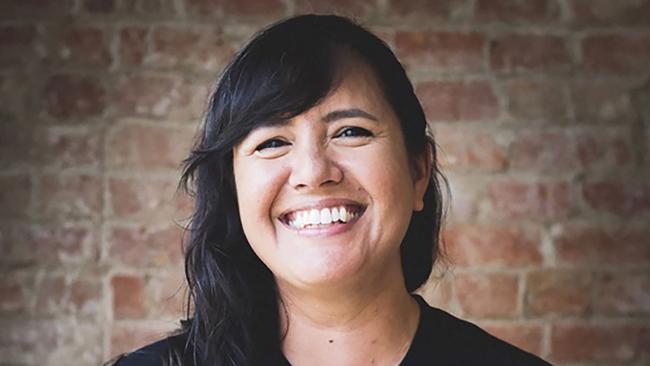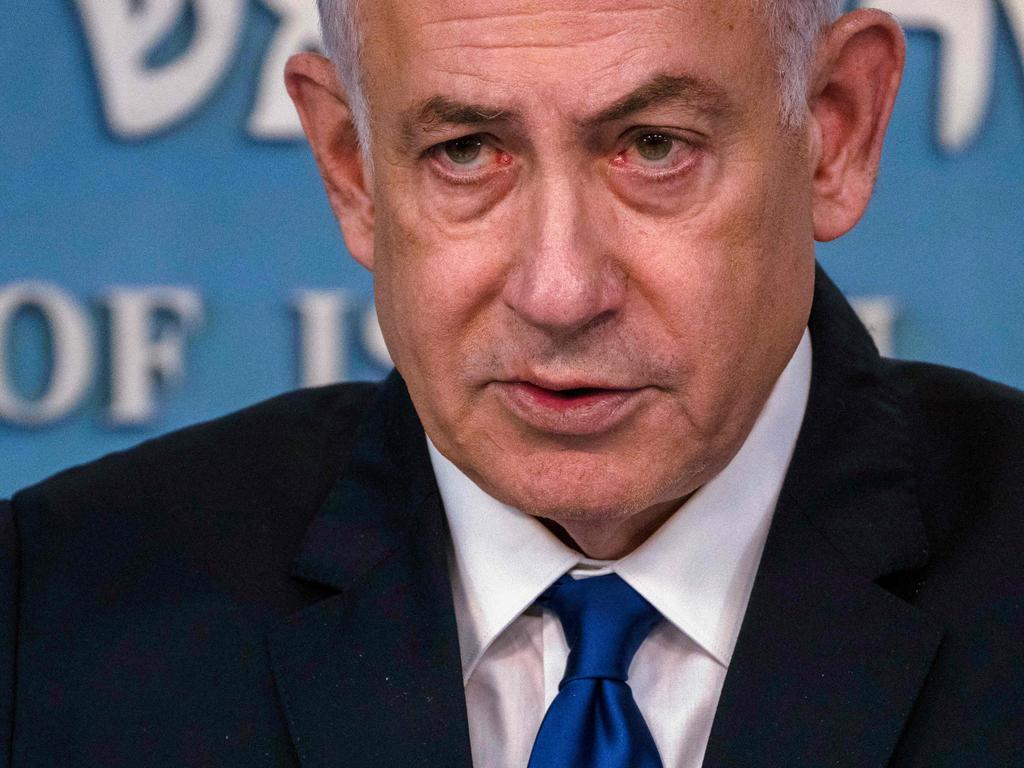Aid worker death forces Israel to pivot
As Australia appoints a special military adviser, we ask what he can realistically achieve - and what’s Israel’s next move?

On television screens around the world, Jose Andres is raising his voice in fury.
“Humanitarians and civilians should never be paying the consequences of war,” Andres tells one interviewer.
“This doesn’t seem any more a war about defending Israel. This really, at this point is a war against humanity itself,” he tells another.
Andres is a celebrity chef - and the founder of a charity called World Central Kitchen, which provides food aid in humanitarian crises around the world, from Africa and Central America to Australia after deadly bushfires.
Now, Andres’ rage against Israel has turned him into a lightning rod for global concern about the war in Gaza.
Why is he so angry? Because seven of his workers were killed in an Israeli air strike last week, including Australian Zomi Frankcom.
How did Zomi Frankcom die?
The images that emerged from that strike were horrifying. Three vehicles were destroyed, at least one with a huge hole in its roof where a projectile had entered at massive speed.
Israel initially called it a tragic accident - something that happens in war - but WCK said their unarmed civilian workers had cleared their itinerary and route with the Israeli Defence Forces before setting out.
Jose Andres said he just didn’t believe this was an accident - and part of Andres’ power is that he is a supporter of Israel.
“Israel is better than the way this war is being waged,” he wrote in the New York Times.
“It is better than blocking food and medicine to civilians. It is better than killing aid workers who had co-ordinated their movements with the Israel Defence Forces.”
One death a tragedy, millions a statistic
There’s a famous saying - often attributed to the Soviet dictator Josef Stalin, but never proven to have been actually said by him - that ‘if one man dies of hunger, that’s a tragedy. If millions die, that’s just a statistic.’
Whether Stalin said it or not - and he certainly presided over the deaths of millions during the USSR’s brutal decades of mass imprisonments, deportations, famines and political purges - there’s a resonance to that saying in this moment.
How does this change the war?
The war in Gaza has been going for six months - ever since Hamas militants, allegedly including some workers employed by the United Nations agency working in Gaza - came over the border and massacred Israelis.
Babies, grandparents, women and children were murdered in peaceful farming communities.
Young women were raped and killed at a music festival.
Soldiers died at military bases.
Since then, there have been so many images of death in Gaza - in the rubble of devastated buildings, in the hospitals where Gazans gathered to shelter from the onslaught, as Israel sought to destroy Hamas’ senior leadership and eliminate the tunnels under Gaza where they hide.
So - why has this incident galvanised opinion in a way countless images of rubble and devastation could not?
Who was Zomi Frankcom?
A big part of the reason is Zomi Frankcom.
Zomi - with long dark hair and a huge friendly smile, had previously worked for WCK in Asia and Africa.
In a video posted to World Central Kitchen’s social media channels a week before the strike, she introduced a fellow worker, Olivier, at the Dier al-Balah kitchen in southern Gaza, where they were making “beautiful, fragrant, aromatic rice”.
Her family says she was an outstanding woman who lived to serve others. .
Strike ‘broke the camel’s back’
Cameron Stewart, The Australian’s chief international correspondent, has been covering the global fallout from the Israel-Hamas war since October 7.
Stewart says: “I think in a way, for some countries, certainly for the US, (the aid worker strike) was the straw that broke the camel’s back.
“They’ve gone from almost uncritical support for Israel to saying, listen, we have a real problem with some of the aspects of the conduct of the war.
“And I think the reason why they focus so much on this tragedy is there is a suspicion that the IDF has simply not given enough care and cause and thought to protecting civilian casualties, despite what the West is increasingly calling for.”
The US and Australia both immediately expressed outrage over the missile strike, with Anthony Albanese saying: “This is a human tragedy that should never have occurred. That is completely unacceptable. And Australia will seek full and proper accountability.”
In Israel, thousands of people joined rallies to protest against Benjamin Netanyahu’s leadership and conduct of this war, and to call for an immediate ceasefire deal.
The families of some of the hostages still being held in Gaza were also at the rallies, urging members of Israel’s parliament – the Knesset – to boot Netanyahu out. They say the PM has deliberately sabotaged efforts to bring the hostages home.
‘Ebbing trust’ in IDF
Cameron Stewart: “I think the rest of the world wants to be sure of the transparency here. I thought the IDF actually came at reasonably fast and with a fair bit of detail, but I think it just shows the ebbing trust and empathy towards the IDF in some quarters.
“The notion of, of this convoy being targeted when they had approval and everyone supposedly knew what they were doing is a fairly astonishing mistake.
“You hear about the three cars and three missiles. It wasn’t just a one-strike mistake.
“That’s why this is such a pointed response by these countries, including Australia.”
What can Australia achieve?
The Albanese government has appointed a former defence chief, Air Force Marshal Mark Binskin, to be Special Adviser to the government on Israel’s response to the disaster.
So what will he do, and is Australia’s voice meaningful in this moment?
Cameron Stewart: “The appointment itself is almost like a symbolic message, I think, rather than something that will actually achieve a concrete result.
“Australia is effectively telling the Israelis: ‘Listen, we think we want more transparency. We want to make sure that everything possible is looked at. This is one of our nationals who has died’.”
Will Binskin achieve anything?
Stewart: “Mark Binksin is a very good former Australian defence chief - no reflection on him - but I’m very sceptical that this will lead to any great revelations.
“I think it is more of a symbolic message that Australia is giving to Israel, that it is watching the conduct of the war and Australia’s level of support is going to be slightly contingent now on the way that Israel is fighting this war.
“And in fact, that’s a message that was very much mirrored in the United States with the United States Secretary of State, Antony Blinken, who said at the weekend that Israel’s priority now must be the protection of civilians first, ahead of the military operation.
“That is a very big statement for the United States to make.
“And I think that’s the general mood that we’re talking about with the reaction to this tragedy.”
Is Israel targeting aid workers?
Francesca Albanese, a senior UN staffer with responsibility for the Palestinian territories, has suggested the Israeli Defence Forces are deliberately targeting humanitarian workers in order to starve the people of Gaza.
Cameron Stewart: “I don’t think there’s any credible evidence at all to suggest that that’s true. I mean, this is a disaster for Israel; the loss of the aid workers is a PR disaster for Israel across the world.
“They’re going to pay diplomatically for it.
“In a lot of ways, it is just not the sort of thing that a country like Israel would do, in my opinion, deliberately.
“What it does is focus on the humanitarian shortcomings of Israel as far as supplying aid into Gaza.
“That’s a different question, to deliberately targeting humanitarian aid, because I just don’t think there is any evidence of that. And I think simple logic would tell you that wouldn’t be in Israel’s interests anyway.”
Is Israel blocking aid?
Until now, Israel hasn’t really admitted fault about the distribution of humanitarian aid, saying it is allowing trucks through the aid checkpoints, despite Hamas’ accusations that it is not, and claims of an imminent famine.
Cameron Stewart: “The United States doesn’t accept that version from Israel. It doesn’t it doesn’t accept that Israel is doing everything it can to get it into the territory.
“It has called on the government, Benjamin Netanyahu, to do far more to open more crossings, to send more aid in.
“The Americans, of course, have tried to, are trying to build (a pier) to bring aid in from the Mediterranean into Gaza.
“But I think this is a problem for Israel. I actually think Israel would be much better served to really, really, press the accelerator when it comes to getting more aid into Gaza.
“If Israel wants to, win more hearts and minds around the world, that is absolutely the best way to do it.
“And you do have a genuine humanitarian crisis in Gaza. I think that they are improving, but there’s still a long way to go.”
Will weapons sales stop?
The United Kingdom has threatened to stop selling weapons to Israel if it’s proven that that the IDF has broken international law.
In the United States, some elements of the Democratic Party are calling on Joe Biden to restrict military aid.
Cameron Stewart: “Any decision by Britain or America to do that would be really catastrophic for Israel.
“So you’d think it’d be a fairly strong lever, pressure on Israel to at least modify its policies.
“But I am very sceptical that either Britain or America would do that.
“In the end, Israel is a lone democracy amongst a bunch of countries that want to get rid of it, and I just don’t think it would ever go that far.
“Even if (a military aid ban) might be waved as a potential lever, I just don’t think it would be implemented.”
This is an edited transcript of our daily news podcast The Front. Find it wherever you get podcasts, or on The Australian’s app.






To join the conversation, please log in. Don't have an account? Register
Join the conversation, you are commenting as Logout